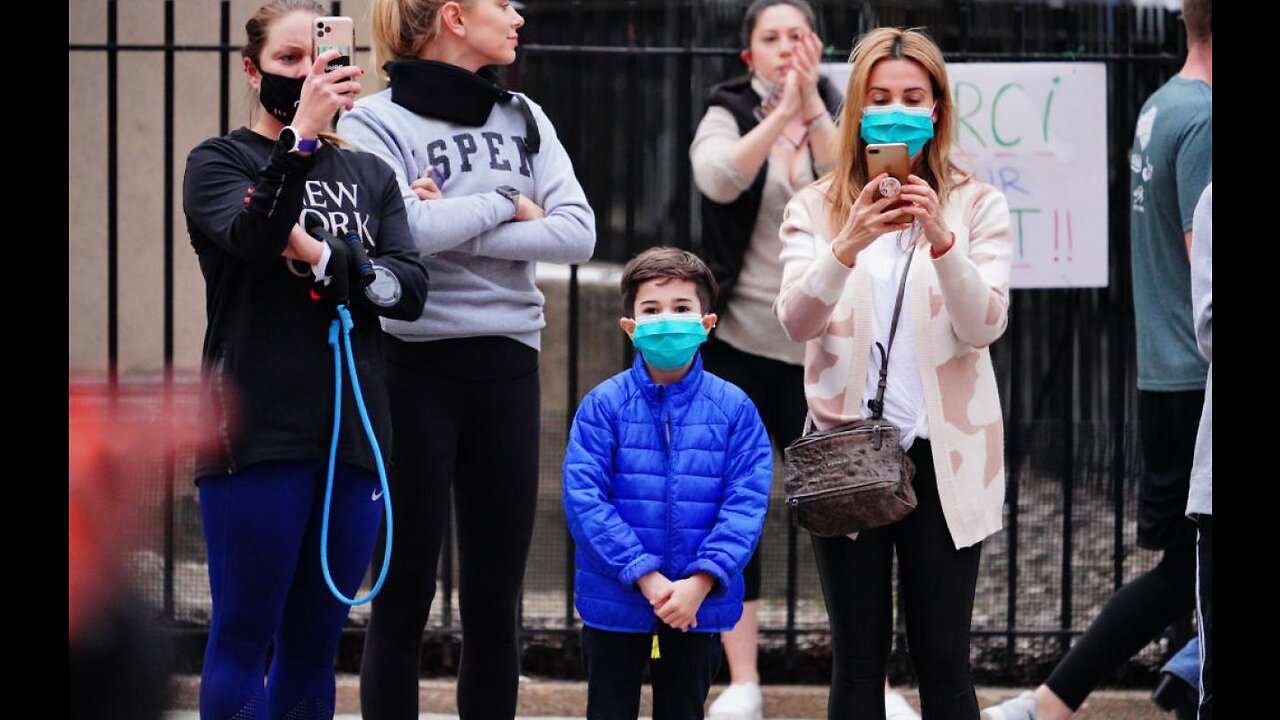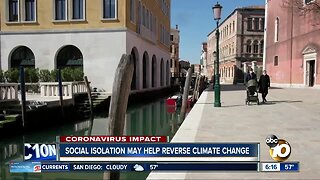Premium Only Content

7 ways coronavirus may change society
COVID-19 has already created dramatic changes in day-to-day interactions with people. The big question is what changes are temporary and which ones are permanent? It may be too early to answer that question as many states struggle to navigate the ways to safely reopen the economy.
Here are 7 areas where we see some possible big societal changes:
Protective gear: Wearing masks and other protective gear in public places, such as on public transportation and in supermarkets--even schools, could become the new normal, especially during the winter when respiratory diseases are more prominent.
Telework: Before the COVID-19 outbreak, only 7 percent of workers in the U.S. had access to a “flexible workplace” benefit, or telework, according to a report by the Pew Research Center. Those workers were mostly managers, white-collar professionals and highly paid. While many agencies were slow to embrace telework initially during the coronavirus outbreak, many more companies forced to make the switch are using is as a model for future work.
Transportation: As working from home becomes more popular, traffic on the roads could be reduced, as well as the amount of people taking public transportation.
Entertainment: Forget the zombies. Expect the entertainment industry to use the pandemic to pump out movies, TV shows, books and even music centered around pandemic themes. But large concerts and packed theme parks may be pushed to the wayside in favor of safer activities.
Testing: Widespread efforts to test for COVID-19 could be implemented on a regular basis in schools, nursing homes or other places with a high concentration of immunocompromised people. Some nations are also considering an immunity passport, where people who have been tested and can prove they’re not a health risk will be allowed to travel across borders and onto planes.
Remote learning: Institutions, from k-12 to high-ed, are looking for ways to continue to teach remotely. Many school districts are being forced to quickly update tech infrastructures to allow for better online learning, and to make sure everyone has access. Teachers and professors may have to take classes to learn how to best accommodate those who are learning online.
Telehealth: Social distancing in one way or another could be here to stay. Advances in telehealth would eliminate the need for someone to physically go to the doctor in order to prevent the spread of illnesses. A video chat session with a doctor may be all someone needs to get a prescription.
Related stories:
New FDA guidelines on washing down groceries
Trump to sign order temporarily suspending immigration due to coronavirus
Trump has wide power to overrule governors during coronavirus emergency, legal experts say
Georgia, South Carolina, Tennessee governors reopening their states
How Adam Schiff secretly thwarted efforts to bring transparency in Russia probe
-
 1:46
1:46
Just the News
1 day agoDefense Expert Destroys Mark Milley's Afghanistan Withdrawal Narrative
3.29K6 -
 3:43
3:43
KGTV
5 years agoCoronavirus Isolation may help reverse climate change
56 -
 1:38
1:38
WMAR
5 years agoNursing facilities change policies amidst coronavirus
139 -
 1:22
1:22
WGBA
5 years agoLocal churches change service practices amidst coronavirus concerns
163 -
 1:43
1:43
WFTS
5 years agoFuneral homes change protocols during coronavirus pandemic
19 -
 1:35
1:35
KSHB
5 years agoHospitals change entry procedures amid coronavirus outbreak
51 -
 1:40
1:40
WMAR
5 years agoNursing facilities change policies amidst coronavirus
31 -
 1:33
1:33
KMTV
5 years agoHumane Society aims to raise adoptions, fostering before peak of coronavirus
23 -
 4:19
4:19
WTMJMilwaukee
5 years agoHow the Wisconsin Humane Society is Responding to the Coronavirus
7 -
 1:52
1:52
KMGH
5 years agoAmerican Physical Society cancels Denver science convention over Coronavirus concerns
21